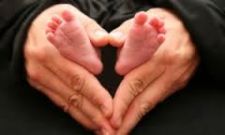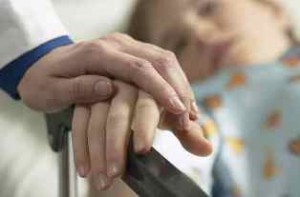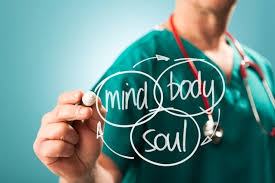 The present health care crisis is not just related to health care. It is a crisis related to what is happening in our society. We have become depersonalized as a society, invested in technology and not the experience people are having. Studies verify what happens to children who grow up unloved and experiencing indifference, rejection, and abuse. By midlife, if they haven’t killed themselves and/or others while seeking revenge (and experiencing guilt related to their actions), almost 100% of them have experienced a major illness. Loved children, on the other hand, have one-fourth the serious illness rate.
The present health care crisis is not just related to health care. It is a crisis related to what is happening in our society. We have become depersonalized as a society, invested in technology and not the experience people are having. Studies verify what happens to children who grow up unloved and experiencing indifference, rejection, and abuse. By midlife, if they haven’t killed themselves and/or others while seeking revenge (and experiencing guilt related to their actions), almost 100% of them have experienced a major illness. Loved children, on the other hand, have one-fourth the serious illness rate.
Information does not resolve unhealthy behavior. People who smoke or are two hundred pounds overweight are not acting out of stupidity or a lack of knowledge. What everyone needs is inspiration. When parents, teachers, clergy, doctors, politicians, and other authority figures display their love, individuals feel that they are being related to. This is not about liking what people are doing, but about loving them and maintaining a relationship with them until they realize they are worthy and loved. At that point they begin to follow instructions and behave in a manner that is life-enhancing and not self-destructive. I know this from my experience as a surgeon who did not reject his patients.
 When you grow up without love, what you seek are rewards and feelings that you never experienced in a healthy way. So the individual turns to addictions to drugs, food, alcohol, and more as a way of rewarding themselves and numbing their pain. We need to listen to each other and treat the wounds of the individuals we are caring for and about. Studies reveal that when a patient states that their doctor listened to them during their office visit, they are far more likely to take their medication and follow the doctor’s advice.
When you grow up without love, what you seek are rewards and feelings that you never experienced in a healthy way. So the individual turns to addictions to drugs, food, alcohol, and more as a way of rewarding themselves and numbing their pain. We need to listen to each other and treat the wounds of the individuals we are caring for and about. Studies reveal that when a patient states that their doctor listened to them during their office visit, they are far more likely to take their medication and follow the doctor’s advice.
Society needs to see parenting as a public health issue and help parents bring their children up feeling loved. We have birthing classes but no parenting classes. The latter is desperately needed if we are to avoid self-destruction. All authority figures in a person’s life become either destructive or constructive parents for the individual. This includes everything from global warming to obesity.
If you grow up with a sense of self-worth and self-esteem, you do not behave in a destructive and unhealthy manner towards yourself and others. As the father of five children, I know the importance of letting the children know that parental discipline comes from a sense of love for them. Then they follow directions because it gives a new sense of meaning to the message. I was called a CD (Chosen Dad) by a suicidal teenager. She is alive today because I became her Chosen Dad who loved her. We all have the potential to re-parent ourselves and others.
 Doctors, too, must understand that what people need is treatment—not just for their diagnosis, but also of their experience. When you ask patients what they want from their doctors, they do not ask that every disease be cured—but they do ask that doctors, “Knock on my door, Look me in the eye when they talk to me, Say hello and goodbye, and Call me by my name.”
Doctors, too, must understand that what people need is treatment—not just for their diagnosis, but also of their experience. When you ask patients what they want from their doctors, they do not ask that every disease be cured—but they do ask that doctors, “Knock on my door, Look me in the eye when they talk to me, Say hello and goodbye, and Call me by my name.”
Having a disease is an experience which varies with every individual. If you ask 100 people with the same illness to describe their experience, you will get a different answer from almost every one of them. I know this from my experience as a physician who has counseled cancer patients and others for decades. The words they come up with relate to their life and help me to treat and understand their woundedness.
When a major medical journal publishes a pharmaceutical ad which reads, “I was depressed, unable to cope. I went to see my physician. I said you’ve got to help me. He prescribed an antidepressant and I feel wonderful now.” I wrote in criticizing them for ignoring the patient’s needs and responding so impersonally and asked them to insert a sentence which asked what was happening in the patient’s life. They cancelled the ad.
I know doctors whose salaries were capped because they talked to patients four minutes longer than the department average. That is sick also. The American College of Surgeons pledge ends with, “I will deal with my patients as I would wish to be dealt with if I were in the patient’s position.” I gave up trying to get them to change it to care for my patients as I would wish to be cared for. The only way to avoid a health care crisis is to care for and about the people who need our care.
We also should reward those who remain healthy. If I do not require a doctor’s service, except for an annual physical exam, or any medications why not reward me at the end of the year with a refund or lower premium on my health insurance? If I am a safe driver I am rewarded. So why not reward me for safe and healthy living, and let those who are self-destructive pay the price. If it becomes costly for them, maybe they will rethink their actions.
We also ought to be sure that all future doctors and health care executives spend a week in a hospital bed so they no longer are tourists but have the native’s experience. The former CEO of the Ritz Carleton Hotels, Horst Schulze, changed the way the hotels were run after he spent time in a hospital being treated for cancer. He humanized them so employees took on the problems of their hotel residents and greeted them by name. Every employee gets a list of twenty behavior patterns that they are to adopt. Some hospitals have used this list when I gave them a copy.
We also need to understand that we have something to learn from patients who do better than expected. There are cases of self-induced healing. We can learn about survival behavior from these people and teach it to others. Relationships, connections, meaning in our lives—all are survival behavior qualities. It is no accident that women live longer than men with the same cancers, and that married men live longer than single men and have less lung cancer than single men if they are both smokers.
We could also cancel Monday and reduce the rate of heart attacks, strokes, suicides, and other illnesses. Truth is that wouldn’t work because Tuesday would become the problem. Again, we need to teach people how to cope with stress and how to control their depression, fears, and other self-destructive emotions. Your body loves you, but if you do not love your life it will end far sooner, thinking that it is doing you a favor.
 Mind-body medicine should not be an alternative nor should complementary and integrative medicine be something doctors are not exposed to during their training. Medical journals, which are supported by pharmaceutical advertising, do not print articles which would expose doctors to alternative therapies. When patients are diagnosed with an illness, they should be given instructions about how to enhance their immune function, not just a pill to swallow. Then patients can act like someone with an immune competent personality. Psychiatrist George Solomon saw the benefits of such behavior early on when working with HIV+ patients, and I see it in cancer patients and others.
Mind-body medicine should not be an alternative nor should complementary and integrative medicine be something doctors are not exposed to during their training. Medical journals, which are supported by pharmaceutical advertising, do not print articles which would expose doctors to alternative therapies. When patients are diagnosed with an illness, they should be given instructions about how to enhance their immune function, not just a pill to swallow. Then patients can act like someone with an immune competent personality. Psychiatrist George Solomon saw the benefits of such behavior early on when working with HIV+ patients, and I see it in cancer patients and others.
Doctors need to be teachers. Doctors also aren’t trained in mind-body medicine. They are not told about Carl Jung interpreting a dream and diagnosing a brain tumor. Yes, mind and body communicate, and this inner wisdom is also vital to survival. The patient’s beliefs affect the outcome of therapy. When chemotherapy is portrayed as the devil giving you poison, you are in big trouble. So doctors need to be taught how to communicate and enhance our healing potential. Scalpels can kill or cure, and so can words by becoming swords.
Survival behavior means people should not be a submissive and suffering patient, but instead become respants, or responsible participants. Each year, 100,000 people die from medical errors. Patients need to be known as people—not by their disease or room number. We need to humanize the system for both the doctor and the patient. Then doctors will know how to deal with their feelings and loss, and not just think that separating themselves from their patients will help them feel less pain if their patient dies. There are many famous paintings showing the doctor sitting next to the patient’s bed, chin in hand, thinking while their patient is dying. We need to reach out and touch each other. To quote a young man who died of AIDS, “What is evil is not the disease, but [it is] to not treat the person with the disease with compassion.”
My life as a physician was changed when my patient with breast cancer said to me, “You’re a nice guy. I feel better when I am in the office with you, but I can’t take you home with me. So I need to know how to live between office visits.” I started support groups to help patients learn. I was amazed at how few patients came to the groups when I offered them a longer, better life if they attended. I learned that if you grew up with guilt, shame, and blame from parents, teachers, and religious beliefs, you were afraid to participate in your own wellbeing. That is why the group became ECaP or Exceptional Cancer Patients. What I learned was when you helped people to live, they derived physical benefits from their new, joyful life—and didn’t die when they were supposed to. The best hospices have graduations and dropouts, too.
If I were in charge of health care, I would also reward those people and companies who show the benefits of treatments that they can’t patent. A tax deduction or some other financial reward would help lead them to investigate more natural therapies and treatments rather than reject them as unproven or unknown.
I have continued to run support groups for over 30 years. I have also benefited from the therapy. I have learned that people are not statistics—we have to help people in our lives achieve their potential and not see death as a failure or lost battle—whether we are medical professionals, friends, or family. When we see disease as the enemy and only focus on killing the disease, we empower our enemy. As Mother Teresa said, “I will not attend an anti-war rally, but if you ever have a peace rally, call me.”
We need to help people to heal their lives and bodies, and benefit from the healing and the internal environment it creates. We give messages and instructions to our genes (epigenetics) through our lifestyle and personality, so to reduce vulnerability to disease we may need to modify certain lifestyle and personality behaviors.
Medicine needs to focus on the people with the illness and not just the disease.
Peace,
Bernie


My Bad First Date with My New Doc | Bottom Line Inc
[…] cancer care with his focus on patient experience, wrote an article that opened with the statement “The present health care crisis is not just related to health care. It is a crisis related to what… He then goes on to say, “I know doctors whose salaries were capped because they talked to […]